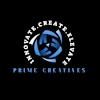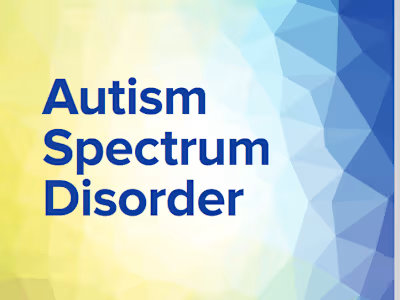SCIENCE AND PSEUDOSCIENCE IN CRITICAL THINKING
Like this project
Posted Mar 30, 2024
we all know Science and pseudoscience are both ways of making claims in the present world. This project explains how both are applicable in critical thinking.
Likes
0
Views
40
Clients

Academic Federal Credit Union
Science and pseudoscience are both ways of making claims in the present world. However, they differ in how they justify those claims. For instance, science is based on empirical evidence, rigorous testing and peer review. On the other hand, pseudoscience is based on vague or testable claims, anecdotal evidence and appeals to the authority or emotion.
As we all know, critical thinking is the ability to evaluate arguments and evidence in a logical and unbiased way. With critical thinking skills, it can help us distinguish science and pseudoscience, and avoid being misled by false or misleading claims.
Science is characterized by its adherence to the scientific method, which involves making observations,formulating hypothesis, conducting experiments and drawing conclusion based on empirical evidence. Scientific claims are subjected to rigorous testing and scrutiny by scientific community before being accepted as valid.
One example of science in the theory of evolution, which is supported by empirical evidence from field such as paleontology, genetics and comparative anatomy. The theory of evolution has undergone extensive testing and has withstood scrutiny from scientific community leading to its widespread acceptance.
On the other hand,pseudoscience, which claims that positions of celestial bodies can influence human affairs, homeopathy, which posits the highly diluted can cure diseases.Despite lacking empirical evidences support and contradicting well establishing scientific principles, these beliefs continue to persist due to factors such as cultural influences, personal experiences and misinformation.
Here are some of examples of how science is applicable in critical thinking.
1.Evaluating evidences; in critical thinking, one examines the quality of evidence supporting a claim. For, example, when assessing the effectiveness of a new medication, critical thinking on scientific studies that have been peer-reviewed and published in reputable journals. They looked for randomized controlled trailed, which are considered the Gold standard in medical research,to determine if the evidence is robust and reliable.
2.Questioning assumptions; science encourages skepticism and the questioning of the assumptions. Critical thinker applies this approach by challenging commonly held beliefs or ideas. For instance, when confronted with a claim that a certain dietary supplement can boost cognitive function, critical thinkers ask for empirical evidence from well-designed studies to support such claims,rather than accepting at face value.
3.Testing hypothesis; critical thinking involving formulating hypothesis and testing them through observation and experimentation. In science, hypothesis are proposed explanations for phenomena that can be tested through empirical investigations.For example, a critical thinker might hypothesize that regular exercise improves mental health and then look for scientific studies that investigate this relationship, considering factors such as study design, sample size and statistical significance.
4.Applying logic and reasoning; science relies on logical reasoning to interpret data and draw conclusions. Critical thinkers use deductive and inductive reasoning to evaluate arguments and asses, their validity. For instance, when analyzing a scientific study, critical thinkers’ asses the coherence of the study’s method sand conclusions, checking for logical inconsistencies or flaws in the reasoning.
5.Seeking consensus; in science, consensus among experts is considered an indicator of the reliability of theory or claim. Critical thinkers value consensus statements when evaluating complex issues. For example, when assessing the reality of climate change, critical thinkers rely on consensus position of the climate scientists, who overwhelmingly agree that human activities are driving global warming.
These examples above illustrate how science provides a framework for critical thinking by emphasizing evidence-based reasoning, skepticism, empirical testing, logical analysis, and evaluate information more effectively and make informed decisions on various aspects of life.
Pseudoscience,while not based on scientific evidence or rigorous methodology, can still be applied in critical thinking by serving as a cautionary example or means a honing one’s analytical skills. Here’s how.
1.Identification of logical fallacies; by examining pseudoscientific, claims individual can practice identifying common logical fallacies such as cherry-picking data,appeal to authority, or to post hoc reasoning. This helps develop the ability to recognize flawed arguments and reasoning in the other contexts.
2.Evaluation of evidence; critical thinkers can use pseudoscience claims to practice evaluating evidence and distinguishing between credible and unreliable sources of information. This involves scrutinizing the quality of evidence presented and assessing whether it meets the standards of scientific inquiry.
3.Questioning assumptions; pseudoscience often relies on unfounded assumptions or untestable hypothesis. By analyzing pseudoscientific claims, individuals can practice questioning assumptions and demanding empirical evidence to support assertions,fostering a mindset of skepticism and inquiry.
4.Promotion of scientific literacy; debunking pseudoscientific myths and misconceptions can promote scientific literacy by highlighting the importance of empirical evidence, peer review, and the scientific method. Critical thinkers can use pseudoscience as a case study to illustrate the principles of scientific inquiry and the pitfalls of pseudoscience thinking.
5.Encouraging open-mindedness; while pseudoscience should be approached with skepticism,critical thinkers should remain open to ideas and evidence. Examining pseudoscientific claims can serve as a reminder to maintain a balance between skepticism and openness, avoiding dogmatic thinking or dismissing ideas without consideration.
Overall,while pseudoscience itself is not a valid or reliable source of knowledge, its examination can provide valuable opportunities for honing critical thinking skills, promoting scientific literacy, and fostering a mindset of skepticism and inquiry. By engaging with pseudoscience claims critically, individuals can strengthen their ability to evaluate evidence, identity logical fallacies, and make informed decision in various domains of life.





